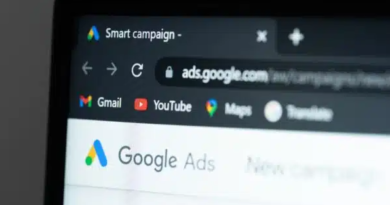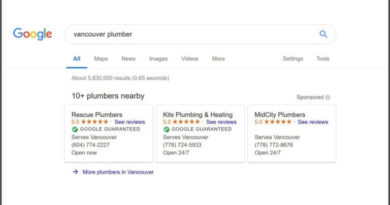When to use branded and competitor keywords in PPC
Explore the benefits, drawbacks and best practices around using branded and competitor keywords in your PPC campaigns.
Bidding on branded and competitor keywords in PPC can help protect your brand and steal competitors’ traffic, but should you do it? This article will look at when there is a case for and against using them.
What types of brand and competitor keywords are there?
Brand and competitor keywords have four variations:
- Your own business brand.
- Your competitor’s business brand.
- Third-party brands that you sell.
- Third-party brands that you do not sell but directly compete with the brands that you do.
For example, if we put that into an actual situation, it might look like:
- Space NK: Your own business brand
- Sephora: The competitor business brand
- Aveda, Cowshed, and Elemis: Third-party brands that are stocked
- bareMinerals, Chanel, Bobbi Brown: Third-party brands that are not stocked
This article will focus on bidding on the business brands.
Dig deeper: Why you should invest in branded keywords even if your company ranks #1 on Google
What are the benefits and drawbacks of bidding on brand terms?
Bidding on brand terms in paid search advertising has both benefits and drawbacks:
Benefits
- Protect your brand position and take that Position 1 search result.
- Avoid loss of branded traffic to competitors.
- Increase trust by having a paid and organic presence, also helping you dominate the search results.
- Stronger conversion rates will be seen through branded ads, which can improve account performance data. It also lets you nudge potential customers over the line.
- More control over how the brand ad is positioned. While organic may be a free promotion, you have limited control over how the search listing appears and which page the user is directed to. Through paid search, you can customize the ad messaging.
- Create ease for your customers looking for your brand.
- Choose where customers land on your website. For example, if you want cart abandoners to land directly into the cart if they return within a certain time frame.
- Cheaper cost per click (CPC), meaning you can drive more website traffic within your budget.
Drawbacks
- Paying for traffic that is searching for you anyway. It can be frustrating to pay for branded traffic, but without doing so, you may lose that traffic to competitors.
- Doesn’t support new customer acquisition, as users are already familiar with your brand.
What are the benefits and drawbacks of bidding on competitor terms?
On the other hand, bidding on competitor terms in paid search advertising also comes with its set of benefits and drawbacks.
Benefits
- Increase your brand visibility and awareness. Even if the user doesn’t click, it plants you in their minds.
- Hijack traffic and sales from your competitors.
Drawbacks
- It can drive up CPC as it increases competition for the terms.
- Lower quality scores as your ad relevance will be low, leading to higher CPCs and lower ad delivery.
- Lower click-through rates.
- Lower conversion rates.
- It can cause retaliatory bidding on your own brand.
When to bid on brand and competitor terms
Deciding when to bid on brand and competitor terms in your paid search strategy depends on your specific business goals, competition landscape, and overall marketing strategy. Here are some considerations:
When competitors are also bidding on your brand
- If a competitor starts bidding on your brand terms and you do not have an advertising presence, your organic listing is not always enough. In this scenario, you may start losing brand traffic to competitors.
- By launching your own brand ads, you can protect your brand position and traffic. Your competitors will have low ad relevance, so you can take back the top position by launching your own ad.
When you have been running branding activity in other channels
- If you have been driving budget into brand awareness activity, you want to ensure that you capitalize on the increased brand searches this should be driving.
When you want to target specific audience sets
- Using branded and competitor terms in conjunction with remarketing audiences can help you customize your ad message and landing pages. This can increase the likelihood of clicks and conversions.
If you have a generic brand name
- If your brand name has multiple meanings or you share the name with other brands in different industries (e.g., Monday, Domino’s), you may struggle to rank organically. Bidding on your brand terms can help you combat this and show up more prominently and frequently.
- It won’t combat all of the issues of shared brand names if the other brands are also bidding, but it will give you a better opportunity to appear.
Dig deeper: Solving an age-old SEO-PPC issue: How to bid on your brand name based on incrementality
When you may not need or want to bid on brand and competitor terms
There are scenarios where bidding on brand and competitor terms may not be necessary or desirable. Here are some situations when you might choose to avoid bidding on these terms:
When there is no competition bidding for your brand
- If there is no competitor bidding and you hold the top organic position, your budget may be better placed elsewhere.
- You can check competitor bidding activity using the Auction Insights and Ad Preview and Diagnosis tools.
If you have a mutual agreement with your competitors
- Where relations are friendly there are sometimes agreements in place to not bid on each other’s brand names.
If your offer is not unique, competitive or compelling
- In this instance, you may not have the pull to draw clicks away from the competition if users are already searching for them.
If you have a poor conversion rate
- Suppose your conversion rate is poor for your existing brand, organic or direct traffic. In that case, you will be better placed investing in improving this before attempting to bid on competitor terms.
What to keep in mind if you do decide to bid
If you decide to bid on brand and competitor terms in your paid search campaigns, it’s important to keep several key considerations in mind:
- Ensure you don’t overpay for the traffic. Test different bidding strategies. I have found Maximize Clicks to be the most effective, but it does vary per brand.
- Add negative keywords. You don’t want to be paying for traffic looking for where to send complaints or jobs, for example.
- Be clever with which competitor keywords you target. For example, people searching for competitors’ reviews or alternatives.
- Use audience observations. Observe your site traffic and customers if you are bidding on competitors.
- Consider and adjust your regular settings, like ad schedules.
The pros and cons of bidding on branded and competitor keywords
Brand and competitor keywords can be important to your paid search strategy. You should review your competitors’ activity, business objectives and position to decide whether bidding is right for your brand.
In addition to keywords on the search network, you can also consider how your ads appear for brand and competitor searches in shopping ads and how you can use competitors to build custom segments.
Dig deeper: 5 tips for effective PPC bidding on a budget


